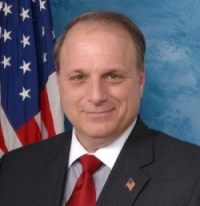I know everyone will have questions about HR 2902, the bill introduced this morning by Rep. Eric Massa. We’ve been working with Free Press and Eric’s staff for the past several weeks behind the scenes on this legislation, and there are some things that I am certain our readers will be asking about, so before things get scattered across multiple articles, I am creating this one to take questions in the comment section and also to update people on answers on an ongoing basis.
I also want readers to understand there are reasons why I may not be able to answer certain questions completely. In some cases, it’s because I don’t know the answer, but I will try and find one. For some others, please trust my judgment and that of the congressman. There are reasons for doing certain things in certain ways. I’ve been just as outspoken with the congressman’s office as I’ve been here. They know the mission statement for our site, and our issues.
Q. Why does HR 2902 not simply ban tiered pricing outright and who decides what “unreasonable” pricing means?
A. Legislation must not only become law but also withstand legal scrutiny. The bill is designed to accomplish what needs to be done – preventing providers from launching Internet Overcharging schemes that, upon review by the appropriate agencies, are simply economically unjustified. These decisions are not arbitrary — there are mechanisms and measurements that take into account provider costs and what they then try to turn around and charge us.
Q. Why does the legislation not speak directly about usage caps?
A. It covers them in a roundabout way, and there are some additional reasons for structuring the language this way. Believe me when I say this was not an issue we’d forget about, considering this site was founded on that issue, even before nonsensical tiered overcharging schemes showed up. Stop the Cap! opposes usage caps, period.
Q. Why does the bill exempt small providers with less than 2,000,000 customers?
A. Until the broadband stimulus package begins to help guarantee reasonable access and prices for all Americans, small providers, often in rural communities, have to find wholesale broadband access at significantly higher expense than major providers do. A number of those providers, including those run by municipalities, are with us on most of our issues, but they confront additional challenges that simply make it easier to exclude them from the language at this time. When access finally becomes inexpensive and plentiful from coast to coast, providers will find few justifications to need an exemption in the first place. Stop the Cap! fully supports major expansions in rural broadband to provide people living in small communities with the same kinds of access those of us in more urban areas enjoy, at comparable prices and speeds.


 Subscribe
Subscribe


